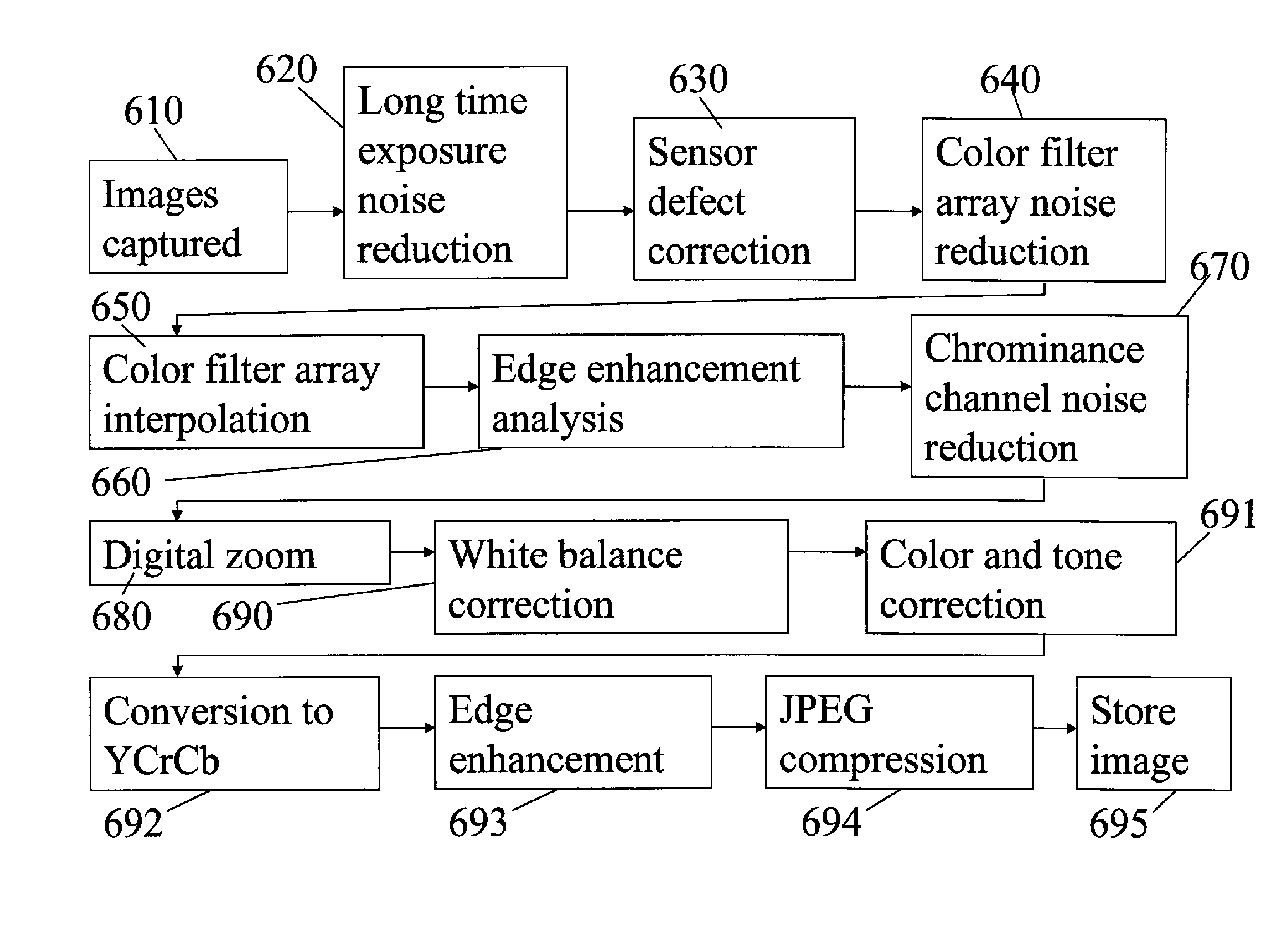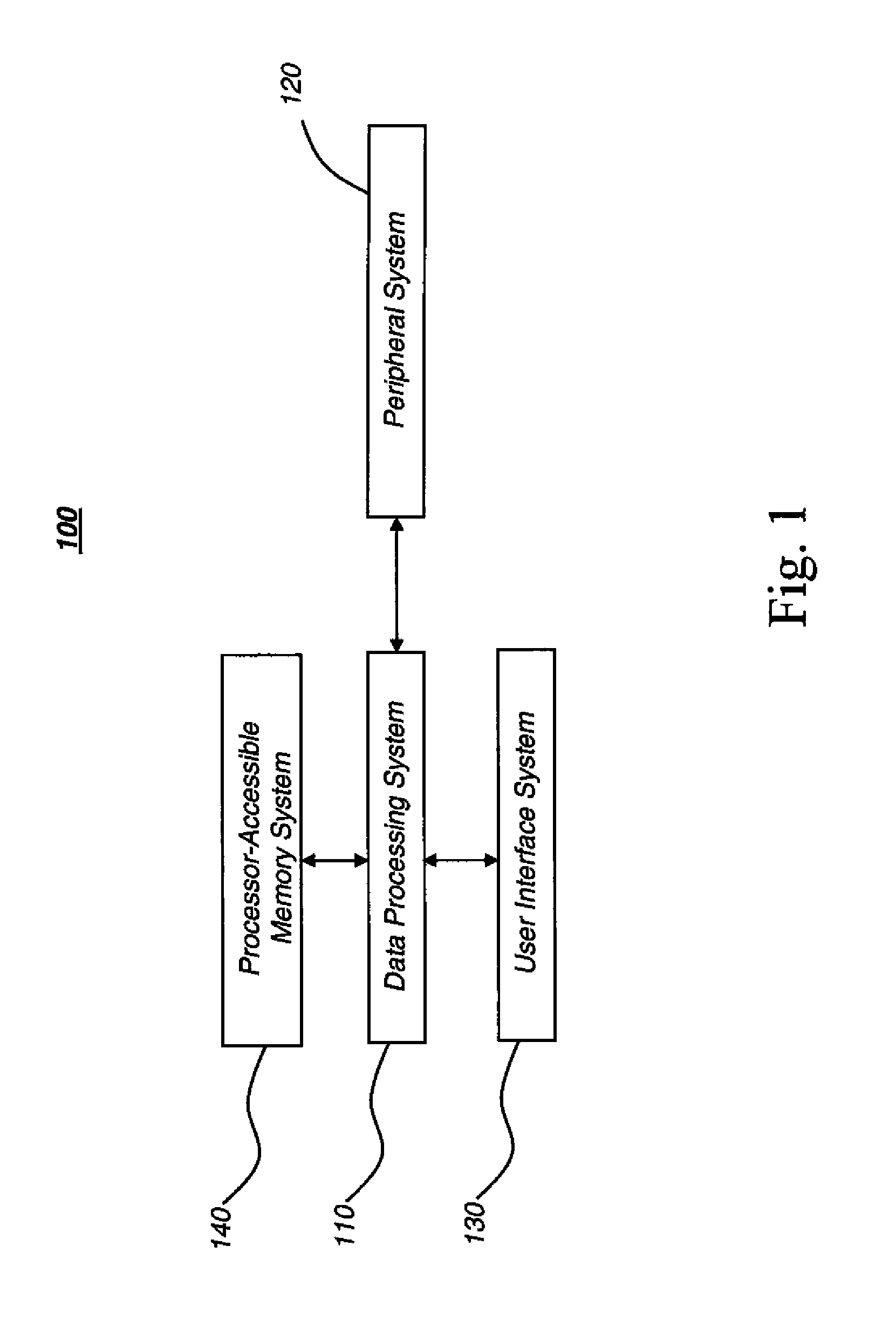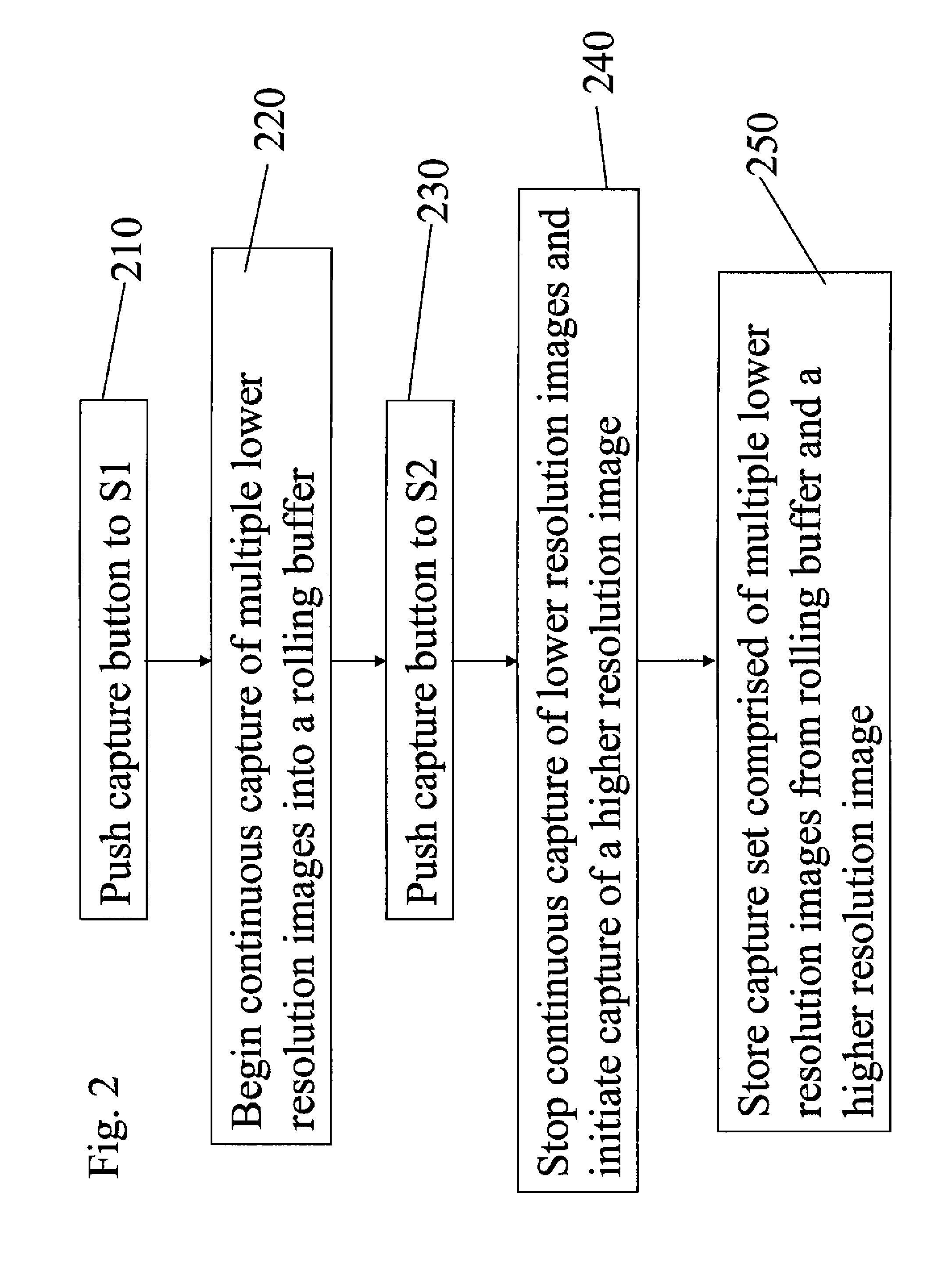Method for forming an improved image using images with different resolutions
a technology of image and resolution, applied in the field of generating an improved image, can solve the problems of degrading the quality of captured images, increasing noise within images, and motion blur in images, and achieve the effects of improving image quality, reducing resolution, and reducing nois
- Summary
- Abstract
- Description
- Claims
- Application Information
AI Technical Summary
Benefits of technology
Problems solved by technology
Method used
Image
Examples
Embodiment Construction
[0022]Embodiments of the invention pertain to acquiring or capturing multiple images of a scene, wherein the multiple images form a capture set composed of lower resolution images and a smaller number of higher resolution images. All of the images are acquired within a relatively short period of time so that they can be considered contemporaneous with one another. The lower resolution images have the same or longer exposure times and effectively bigger pixels due to binning on the sensor than the higher resolution images. Consequently, the lower resolution images have a higher signal-to-noise ratio, a lower resolution, and the same or more motion blur in each image. In contrast, the higher resolution images have a higher resolution due to less binning on the sensor, a lower signal-to-noise ratio, and the same or less motion blur compared to the lower resolution images. A synthesized image with improved image quality (higher resolution, reduced motion blur, and increased signal-to-no...
PUM
 Login to View More
Login to View More Abstract
Description
Claims
Application Information
 Login to View More
Login to View More - R&D
- Intellectual Property
- Life Sciences
- Materials
- Tech Scout
- Unparalleled Data Quality
- Higher Quality Content
- 60% Fewer Hallucinations
Browse by: Latest US Patents, China's latest patents, Technical Efficacy Thesaurus, Application Domain, Technology Topic, Popular Technical Reports.
© 2025 PatSnap. All rights reserved.Legal|Privacy policy|Modern Slavery Act Transparency Statement|Sitemap|About US| Contact US: help@patsnap.com



